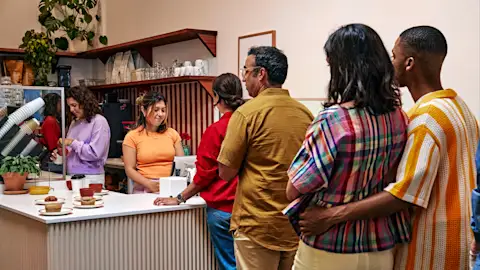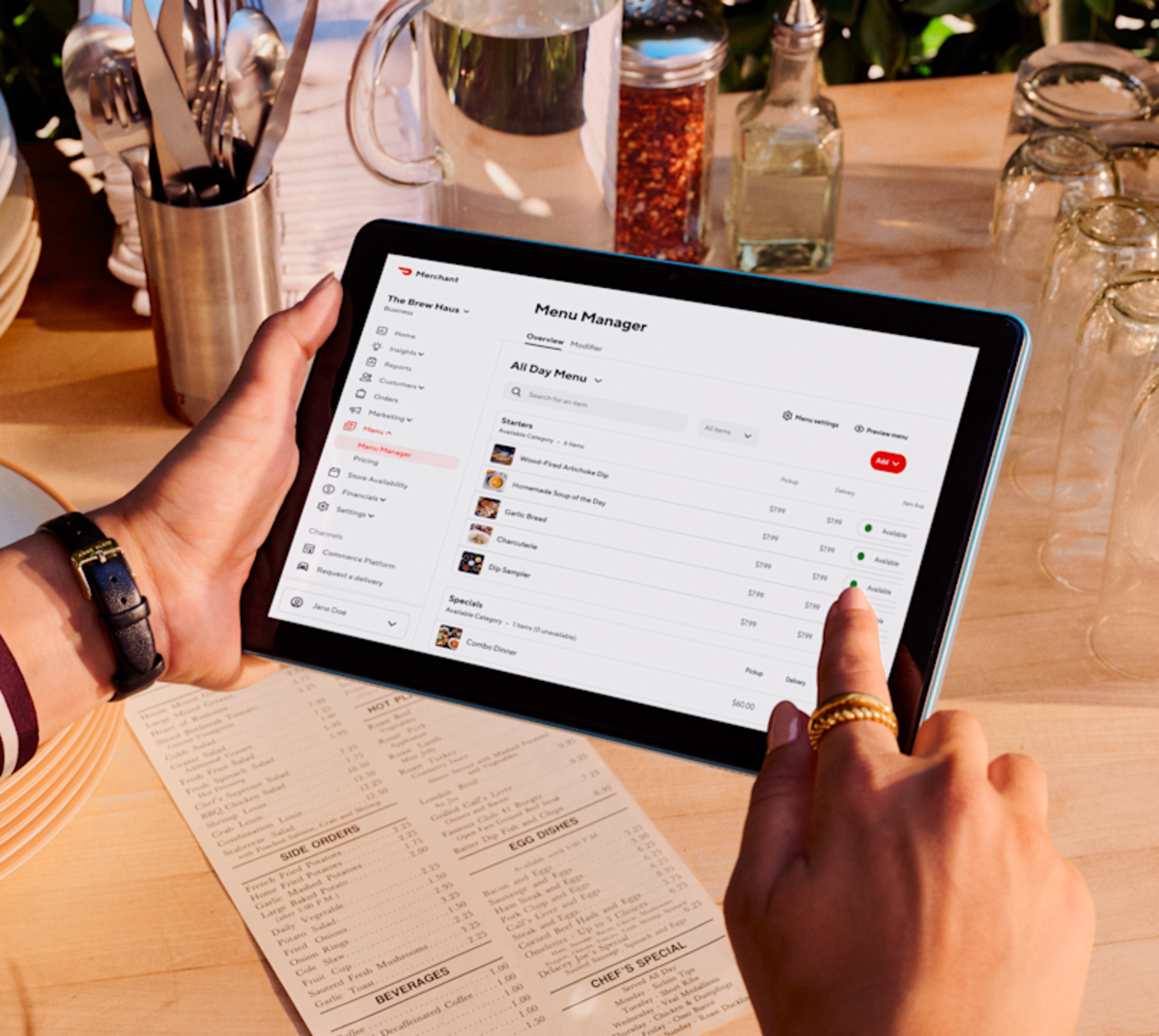Restaurant hosts play a pivotal role in shaping every guest's experience. Beyond greeting customers and managing reservations, they're multitaskers, mood-setters, and essential links between the front and back of house. Hosts help create memorable first impressions and keep the flow of the dining room smooth, even on the busiest nights.
For restaurant operators, hiring the right host can be tricky. You need someone who's friendly and professional, but also organized, composed, and ready to handle the unexpected — from double bookings to walk-ins to sudden staffing gaps.
A clear, well-crafted restaurant host job description helps you reach candidates who are not only capable but also excited to represent your restaurant. Here's what to include in your restaurant host job listing and why it matters.
Why a clear restaurant host job description matters
Restaurant hosts set the tone for the entire dining experience. As the first point of contact, they're responsible for creating a warm, welcoming atmosphere that reflects your restaurant's service standards and values.
But being a great host isn't just about smiling at the door. The role often involves managing the waitlist, answering phone calls, fielding to-go orders, juggling reservations, and working with servers to keep the dining room running smoothly. Depending on the shift, hosts may also help clear tables, run food, or support other front-of-house staff.
In short, hosts are part greeter, air traffic controller, and concierge, and your job description should reflect that.
What an example restaurant host job description looks like
A great job description helps reach skilled job seekers. It should emphasize the specific requirements you're looking for, including hard and soft skills, along with the perks and benefits you will offer employees. Here's how you might go about structuring a host job description:
Job Title: Restaurant Host
Location: [Restaurant name], [City, State]
Pay: List hourly wages or salary, and note whether tips or tip-sharing are included
Schedule: Indicate whether the role is full-time or part-time, and outline typical shifts (e.g., evenings, weekends)
Restaurant Overview: Describe your restaurant's atmosphere, cuisine, and team culture. Include what makes your space unique: Are you known for family dining, date nights, brunch crowds, or high-volume events?
Roles and Responsibilities:
Greet guests promptly and warmly as they enter
Manage reservations, walk-ins, and the waitlist using the POS or table management system
Answer the phone professionally and handle questions or takeout orders
Provide accurate wait times and seat guests efficiently
Communicate with servers and kitchen staff to manage pacing and table turnover
Maintain cleanliness and organization in the host stand area
Support other front-of-house duties during peak hours, such as clearing tables or running food
Ensure every guest feels welcome and cared for from entry to exit
What We're Looking For:
1+ year of experience in a front-of-house or customer service role (preferred)
Friendly, professional demeanor and strong communication skills
Ability to multitask and stay composed in fast-paced settings
Experience with reservation platforms (e.g., OpenTable, Resy) is a plus
Reliable, punctual, and team-oriented
Available to work evenings, weekends, and holidays
Perks & Benefits:
Competitive hourly wage with tips or tip pool eligibility
Flexible scheduling
Staff meals or discounts
Supportive work environment
Growth opportunities within the restaurant

Key elements of an effective restaurant host job description
A restaurant host job description should cover core areas to be effective. First, it should tell applicants exactly what type of dining establishment you run, which adds context and nuance related to what you're looking for in front-of-house staff. Second, it should detail the roles and responsibilities that hosts are accountable for. And finally, it should list any necessary prior training, experience, or requirements.
1. Type of restaurant
Are you a fine dining establishment, a fast-paced brunch spot, or a casual family restaurant? Be specific — the ideal host for a formal steakhouse might differ from one at a trendy downtown taco joint. Paint a picture of the environment they'll be working in.
2. The work schedule
Don't forget to include information about the type of hours, shifts, and coverage you're hiring for. Is this part-time or full-time? Morning, afternoons, dinner shift, or overnights? Weekdays or weekends only? Specify your restaurant's needs to attract the right talent.
3. Restaurant host duties
Go beyond "greet guests." Include responsibilities like managing flow, handling phone calls, using table management software, and communicating with kitchen or FOH staff. If they're expected to jump in and help reset tables or run food, say so.
4. The pre-requisite job requirements
Even if prior experience isn't required, list what matters most: comfort with POS tools, a calm presence under pressure, or a naturally warm personality. These signals help filter for role fit.
5. The perks and benefits you offer
A compelling job description highlights not just expectations, but why your restaurant is a great place to work. Perks like flexible scheduling, staff meals, or opportunities for advancement help attract serious, long-term candidates.

What to look for in restaurant host resumes
When reviewing applications, look for candidates who balance professionalism with approachability. Prior experience in customer service is helpful, but so is an eagerness to learn and a strong work ethic.
Top host candidates will demonstrate:
Strong communication skills and phone etiquette
Confidence under pressure (e.g., managing long waits with grace)
Experience juggling multiple tasks without losing focus
A desire to deliver great service, even if they're not serving the food
Also look for signs of teamwork. Hosts are often the glue between the front and back of house, and those who thrive tend to be collaborative and proactive.
How a strong job description boosts retention and performance
Turnover is a constant challenge in hospitality, especially for entry-level roles. But writing a detailed host job description can help reduce churn and increase performance by attracting people who understand what the job entails and are excited to do it.
As Mike Solomonov, co-owner of CookNSolo Restaurants in Philadelphia, puts it:

"We look at revenue, we look at sales, but really, we look at the way to position our employees and upward mobility for them. And that's what determines our growth."
Ultimately, a job description is a chance to differentiate your business as a brand that people want to work for.
Hiring for other restaurant roles? Check out our guides to hiring the perfect restaurant manager, server, and bartender.




